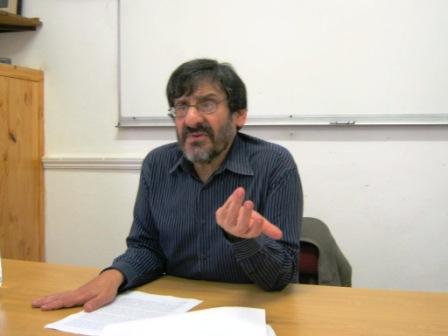
Can it be that last Friday those who hold power here agreed that the events of the past few weeks will be a turning point after all?
A meeting of government, business and labour leaders called by the president reportedly endorsed several measures to respond to strikes, including a one-year salary freeze for business executives and government leaders.
It is easy to be sceptical about agreements hammered out in a single meeting. Business leaders do not have the power to bind corporate executives to refusing a pay rise for the next year. The government should find it easier to enforce the commitment but office holders may find ways around it. And the President’s credibility would be boosted far more by a willingness to cut back on spending on Nkandla than by a salary freeze.
But the commitment is still important because it is the first sign that all the major economic actors are beginning to take responsibility for our problems – and that those who have done well out of democracy are acknowledging their responsibility to everyone else.
This creates the possibility that the Marikana killings and the strikes which followed may really become a turning point rather than an opportunity for everyone to repeat what they believed before they happened.
Our mainstream debate feeds us a story which claims to explain why things go wrong and horrors like Marikana happen. It is a view which suits the prejudices of the well-off, regardless of race, but does not describe our realities.
One theme is that our problems are purely the fault of government greed and incompetence. We are led to believe that businesses and middle class people have no power and are simply victims of what the government does.
A similar theme includes workers among the villains – they engage in violent strikes to get as much as they can out of the economy, again at the expense of the hard-working, honest and powerless people in boardrooms and offices.
There are many reasons to question this story, but the most obvious evidence against it is pay levels at the top of our society. Yes, people in government and union positions often get far too much. But not only do some senior executives earn enough to keep a dozen non-governmental organisations going, the level of executive pay has been rising faster than that of workers.
Inevitably, applying one rule to the private and another to the public, one to executives and professionals and another to workers, makes problems harder to solve by starting a vicious cycle of finger-pointing and buck-passing. It is not credible to lecture workers on the cost of a 10% increase when the person doing the lecturing just received 20%, or to lecture some on their responsibilities while others are accountable to no-one. It also lets some in government off the hook because they can deflect criticism of their selfishness by insisting that they are only doing what business and professional people do.
Whether or not it is effectively enforced, a salary freeze would be an important step forward because it acknowledges that this story is false. Private sector salaries do matter, corporations do have power. Our problem is the gap between all the well-off, private and public, and the millions who do not have enough. And so, because all our major economic actors are part of the problem, they all need to be part of the solution.
That a salary freeze could prompt some deeper thinking about the values of those with influence is probably too much to expect.
The salaries at the top are a symptom of a deeper problem – that success in this society is judged by the flashy display of wealth. No-one really needs the salaries top people in business and parts of government earn: those at the top could live as well on half of what they get. No-one really needs to spend R200m on their home, even if they are president, just as no one really needs R52m a year.
The problem is that this sends a signal to the rest of society that the only people who are worth anything are those who own great wealth. It is hardly a surprise that workers then demand increases and others resort to corruption and crime; often people do this not because they don’t know where their next meal is coming from but because they want respect. Late in his life, the activist and political thinker Neville Alexander gave a speech which tried to persuade us that “enough is as good as a feast”. His point, of course, is that we should own things to live, not live to own things.
That message may be too much of a shock for our economic elites, new and old, public and private. So, if the meeting cannot persuade them to change their values, the next best thing would be that the salary freeze and other agreements reached on Friday will begin a process in which they will share responsibility for the poverty and inequality which causes much of the conflict in this society.
To expect this to happen at one meeting is not realistic and so agreements reached last Friday will have only a limited effect. The test is whether the commitments the parties made then begin a process of engagement and compromise over months and years to build an economy which includes rather than excludes.
A salary freeze commitment acknowledges in principle that the similarities between public and private sector leaders are far greater than their differences, that they share responsibility for where we are and for moving us to a better place. And it provides an opening for citizens to hold the elites to that commitment.
If everyone acts on the commitment, Marikana will be a turning point after all.
- Steven Friedman is director of the Centre for the Study of Democracyat the 老虎机游戏_pt老虎机-平台*官网 of Johannesburg and Rhodes 老虎机游戏_pt老虎机-平台*官网. This article was published on The New Age online.
